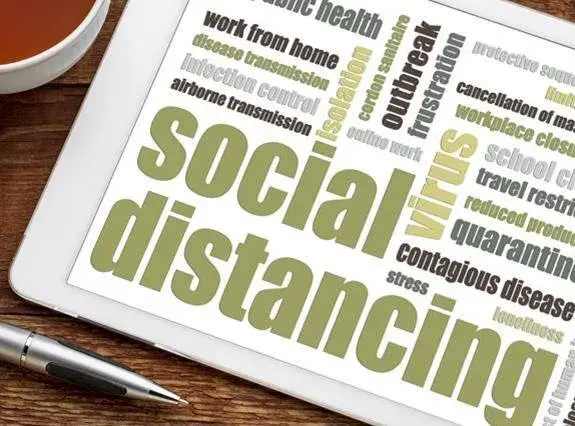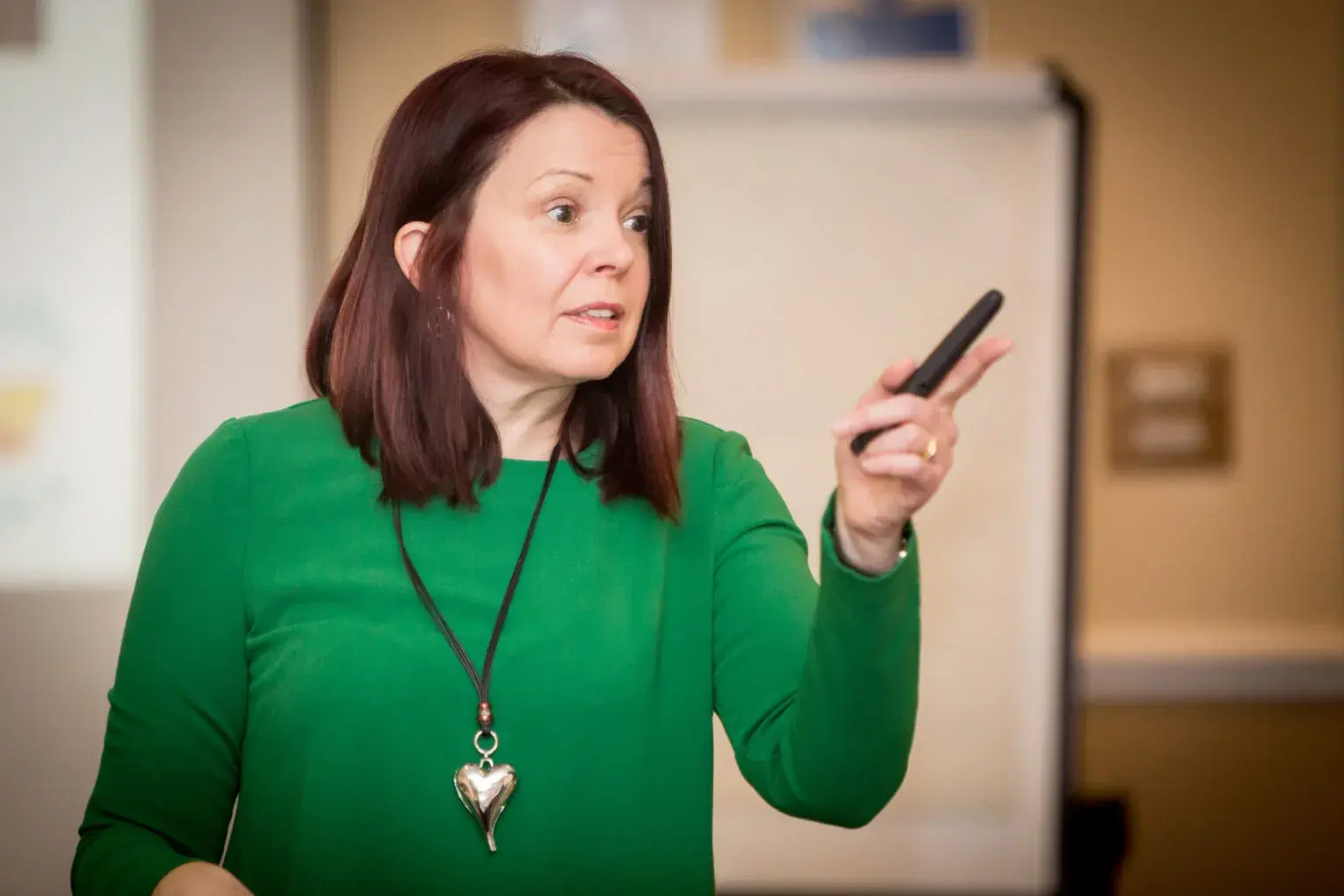Overcoming Self-Limiting Beliefs And Building Resilience In Your Team
By Karen Knight on Apr 29, 2025

"This sort of thing always happens to me". "This is too hard". "I don't deserve to be in this position". "I'm hopelessly over-promoted, and any minute now I'm going to get caught out".
Be honest with yourself. Has your brain ever gone into overdrive with at least one of these thoughts rattled around your head when the going gets tough? Thought so. These are just some of the examples of what we call self-limiting beliefs, and they have a habit of presenting themselves when we're challenged—often at precisely the moments when confidence matters most.
The good news is that each of the negative experiences that prompts us to assume the worst of ourselves represents a teachable moment for you, your team and your organisational culture. With deliberate practice and the right framework, these moments can be transformed into catalysts for growth.
Let's look at how to build resilience in your team by overcoming self-limiting beliefs.
Whether You Think You Can Or You Think You Can't... You're Right!
Henry Ford's famous quote captures the essence of why mindset matters. Our beliefs about our capabilities often become self-fulfilling prophecies that influence our performance and outcomes.
Why is resilience important in the workplace? Because challenges are an inevitability when we're striving to achieve. We can't change the fact that we'll be challenged, but we can fundamentally transform how we respond to challenges.
Self-limiting beliefs aren't just occasional negative thoughts—they're entrenched mental patterns that create invisible barriers to success. These beliefs typically manifest as doubts about capability ("I'm not skilled enough"), belonging ("Everyone else fits in better than I do"), worthiness ("I don't deserve this recognition"), and identity ("I'm just not a creative person").
Leaders should be vigilant in identifying and challenging them, both for themselves and for their team members. Left unchecked, they can impede personal growth, erode workplace satisfaction and hold teams and even organisations back from achieving its full potential.
Free resources like our resilience questionnaire can help you to gauge and improve your own and your team's resilience.
Build A Culture Of Positive Affirmation
Positive affirmations encourage us to dismantle self-limiting beliefs and counteract them with helpful, supportive and empowering thoughts. They can be a powerful tool in redefining how team members view themselves and their capabilities.
Begin team meetings with a brief "wins round" where each member shares a recent achievement, no matter how small. Consider creating team affirmation cards that address common workplace insecurities or establishing a peer recognition system that acknowledges specific strengths in colleagues. When team members learn to apply positive affirmations to themselves and others, they create a foundation for collective confidence that naturally restricts the damage done by self-limiting beliefs.
Establish Daily Practices That Foster Gratitude
Gratitude doesn't just make us happier. It helps us better perceive our sense of value, belonging and accomplishment. According to positive psychology research, gratitude practices are linked to increased wellbeing and more positive emotional states.
Start meetings by asking what team members appreciate about their colleagues' contributions. Create space for acknowledgment of efforts, not just outcomes. Encourage leaders to send personalised notes that highlight specific contributions. These simple practices maintain focus on positive aspects of work, galvanising teams and improving workplace satisfaction even during challenging periods.
Rethink Your Goal-Setting
While broad, sweeping objectives have their place, teams should also set small, measurable and achievable goals. These create a sense of progress and reinforce a shared feeling of competence. The most resilient teams balance ambitious vision with pragmatic stepping stones that build confidence through consistent achievement.
Break quarterly objectives into weekly milestones and celebrate progress markers, not just final outcomes. Implement regular confidence check-ins where team members can voice concerns about achieving goals so barriers can be addressed early. Visual progress trackers make advancement visible to everyone, providing a framework for building collective confidence that carries teams through difficult times.
Create A Supportive And Nurturing Workplace Culture
Mistakes, mishaps and bad days are inevitable. Psychological safety—the belief that one won't be punished for speaking up with ideas, questions, concerns, or mistakes—is the foundation of resilient teams. Google's extensive Project Aristotle research identified it as the single most important factor in high-performing teams.
Leaders can normalise vulnerability by sharing their own challenges and learning moments. Establish feedback approaches that emphasise growth over judgment and create opportunities for team members to request and offer support. A nurturing workplace culture reduces fear of failure, improving how individuals feel about their contributions while encouraging creative risk and experimentation.
Promote The Edison Principle
The inventor Thomas Edison had an iconic saying: "I have not failed 10,000 times — I have successfully found 10,000 ways that will not work." Your workplace culture should categorise failures as learning opportunities rather than permanent setbacks. This can halt the spread of self-limiting beliefs and encourage the kind of outside-the-box thinking that drives innovation.
Institute regular "Lessons Learned" sessions that focus on insights rather than assigning blame. Develop a framework for experimentation that specifies what success looks like, but also what valuable learning might come from failure. When managers are trained to help team members extract growth opportunities from setbacks, the organisation builds resilience that transcends individual challenges.
The Competitive Advantage Of Resilient Teams
In today's volatile business environment, resilience isn't just a nice-to-have—it's a strategic imperative. Teams that maintain performance through disruption, bounce back quickly from setbacks, and sustain motivation during ambiguous periods, creating sustainable advantage in the marketplace.
By systematically addressing self-limiting beliefs and building resilience, you're not just creating a more positive workplace—you're developing a team that can thrive amidst the complexity and uncertainty that define our current business landscape.
Unlock your team's full potential by tackling the self-limiting beliefs that create barriers to their success. Contact Morgan James Consulting today to schedule a consultation and discover how our resilience-building programmes can transform your team's mindset and boost your organisation's performance!
Image source: Canva
- February 2026 (1)
- January 2026 (2)
- December 2025 (2)
- November 2025 (1)
- October 2025 (3)
- September 2025 (13)
- August 2025 (2)
- July 2025 (2)
- June 2025 (1)
- May 2025 (2)
- April 2025 (1)
- February 2025 (1)
- January 2025 (1)
- December 2024 (1)
- November 2024 (1)
- August 2024 (1)
- July 2024 (1)
- May 2024 (1)
- February 2024 (1)
- March 2023 (1)
- December 2022 (1)
- October 2022 (1)
- April 2022 (1)
- December 2021 (2)
- November 2021 (1)
- October 2021 (1)
- August 2021 (1)
- March 2021 (2)
- February 2021 (5)
- January 2021 (1)
- December 2020 (1)
- November 2020 (2)
- October 2020 (1)
- September 2020 (10)
- August 2020 (3)
- July 2020 (1)
- June 2020 (4)
- May 2020 (2)
- January 2020 (1)
- December 2019 (3)
Subscribe by email
You May Also Like
These Related Stories

How To Be A Better Leader And Manage Your Hybrid Team More Effectively
Let's be honest: leading a team has never been just about hitting targets and growing the bottom line. Great leadership …

Gearing Back Up for Business? You Need a Detailed Plan says our HR Expert, Karen Knight
With Boris Johnson pledging to give us his government’s latest thinking on ‘life after lockdown’ by the end of the week, …

Take control of your thinking to reduce stress and build your resilience.
By Lily Newman and Nicola Jackson “The greatest weapon against stress is our ability to choose one thought over another” …
%20(1).jpg?width=1258&height=206&name=Morgan%20James%20Master%20Logo%20file%20full%20colour%20(RGB)%20(1).jpg)



No Comments Yet
Let us know what you think